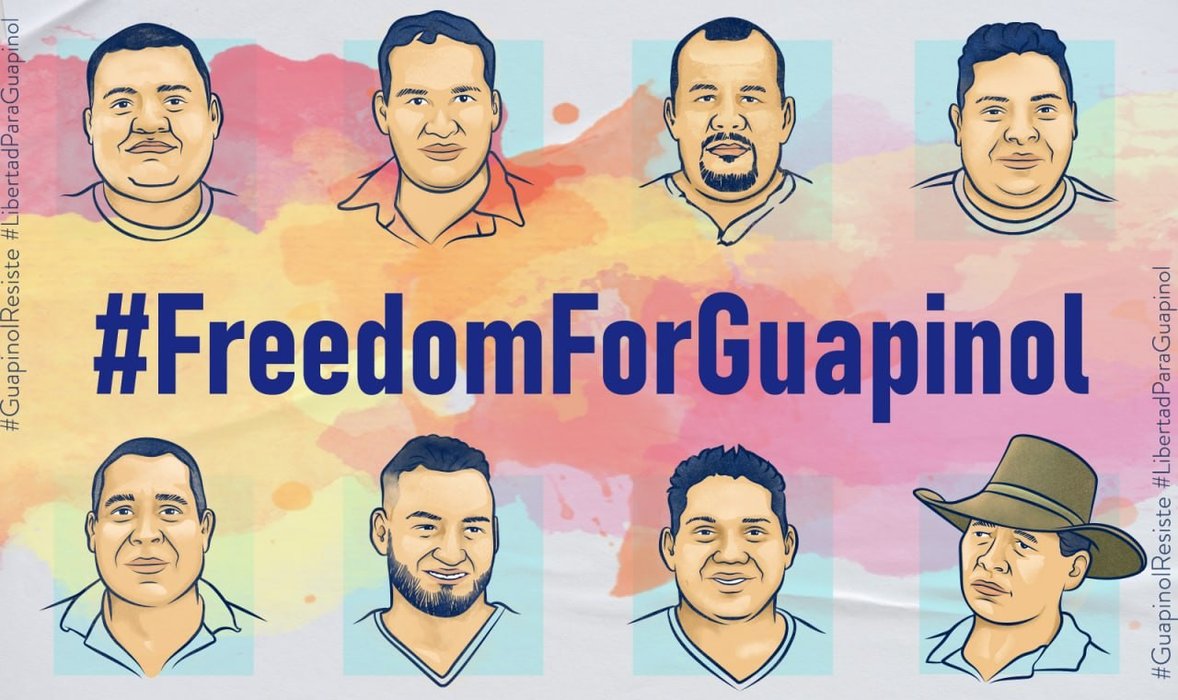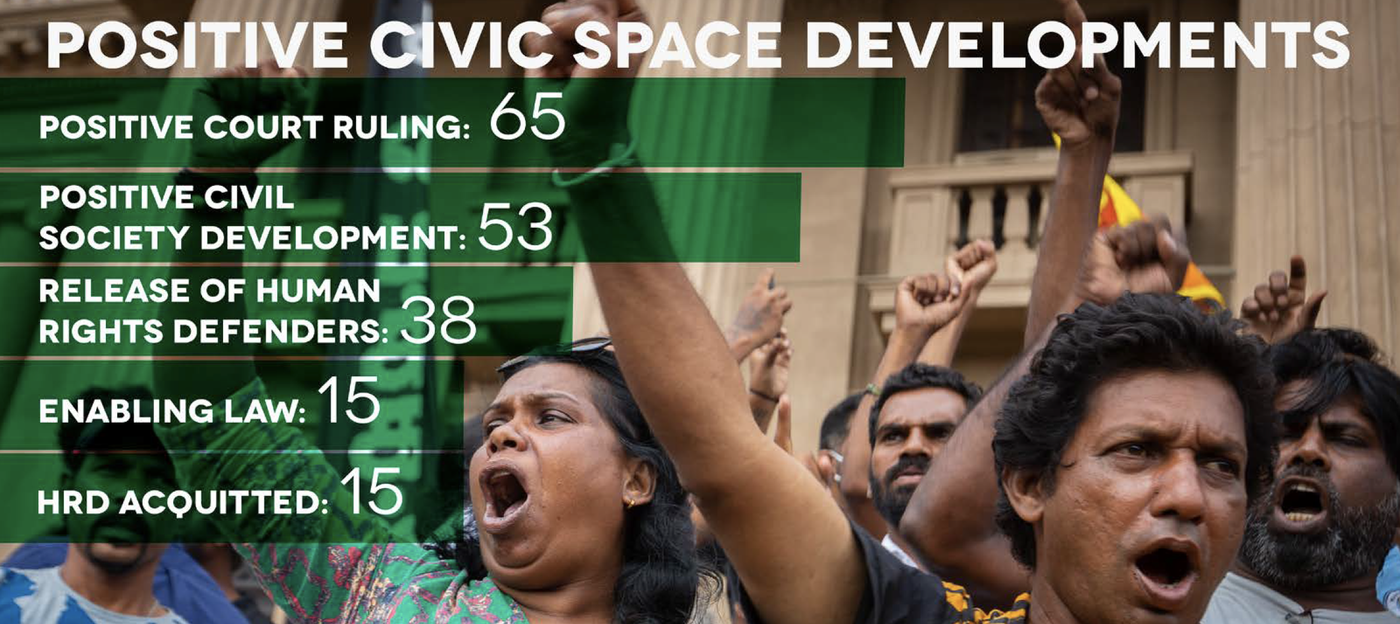Bright Spots

During 2022, the CIVICUS Monitor documented several instances where civic space is opening up and where states are making progress in improving their respect for civic freedoms. Civil society victories were documented even in countries with very repressive environments, showing that while challenges persist, civil society action continues to be a powerful and effective means of defending rights and advocating for their realisation.
Civil society as agent of positive change

Freedom of expression was protected in Australia, amid ongoing campaigning by civil society, when the Labor government that came to power in May 2022 dropped a prosecution instituted against whistleblower and lawyer Bernard Collaery for revealing state spying on Timor-Leste during negotiations over oil and gas reserves in the Timor Sea in 2004.
In Sri Lanka, mass protests led to the resignation of President Gotabaya Rajapaksa, who presided over a climate of repression against activists, journalists and critics.
In Thailand, after many years of civil society campaigning, the authorities formally charged a former senior park ranger and three subordinates suspected of killing an ethnic Karen activist, Porlajee Rakchongcharoen, also known as Billy, in 2014. In Indonesia, activists have pushed the country’s human rights commission to investigate the killing of prominent human rights activist Munir Said Talib, who was fatally poisoned on an international flight in 2004. Although three people have been convicted of involvement in the killing, there are credible allegations that those responsible for ordering his assassination are still at large. After years of advocacy by activists and victims’ groups, the government finally acknowledged severe historical human rights violations.
In Hungary, a significant act of public protest, following a campaign by human rights groups, led to a referendum that was seeking endorsement for the government’s anti-LGBTQI+ agenda failing as the result of an organised boycott.
In Iraq, despite the dire situation, a resilient civil society has defied all odds to push back against government excesses by continuing to take collective action to call for accountability, social justice and the protection of human rights, particularly in regard to violations against protesters during mass protests in October 2021. In response to mounting pressure from civil society, in February 2022 the authorities arrested Lieutenant-Colonel Omar Nizar on charges of killing protesters during an infamous 2019 crackdown on protests.
Human rights defenders released
Civil society activists and journalists were released or acquitted in several countries. After two and a half years in pretrial detention, Honduras’s Guapinol and Sector San Pedro water defenders were finally released in February 2022 when the Supreme Court reviewed an appeal that challenged the constitutionality of the charges against them. The criminal charges brought against the group stemmed from their participation in protests in defence of local rivers impacted on by open-pit mining.

In Iran, woman HRD (WHRD) Atena Daemi was freed in January 2022 after her arrest and prosecution in 2014. Daemi, who campaigns for children’s and women’s rights, as well as abolition of the death penalty, was sentenced to five years in prison for ‘acting against national security’.
In Kuwait, the Criminal Division of the Court of First Instance acquitted the President of the Kuwait Association for Information Security, Dr Safaa Zaman, who had faced charges of broadcasting ‘false news’ and endangering the country's relationship with Egypt. The charges stemmed from statements made on a TV programme.
In Rwanda on 5 October 2022, a court acquitted three journalists who had been detained for four years. The three reporters for the YouTube-based outlet Iwacu – Damascene Mutuyimana, Shadrack Niyonsenga and Jean Baptiste Nshimiyima – were arrested on 9 October 2018 and charged with publishing a ‘fabricated’ image showing Rwandan President Paul Kagame, Ugandan President Yoweri Museveni and a former Rwandan army chief, now in exile, together.
Role of courts in protecting civic freedoms
While justice systems had a mixed track record in upholding civic space in 2022, the courts continued to be a vital forum where this space is protected. In the USA, lawsuits from racial justice groups resulted in security forces adopting positive policy changes on the policing of protests.
Civil society groups also frequently used strategic litigation to appeal to the justice system to push back against restrictive laws and demand recognition of their rights. In January 2022, Ecuador’s Constitutional Court handed down a ruling reaffirming Indigenous peoples’ right to free, prior and informed consent, creating what environmental group Amazon Frontlines said was ‘one of the most powerful legal precedents’ on the matter.
All of these positive changes resulted from the sustained efforts of rights advocates, which demonstrates the crucial role of civil society in serving as a check on excessive government control and a counter to repression.
